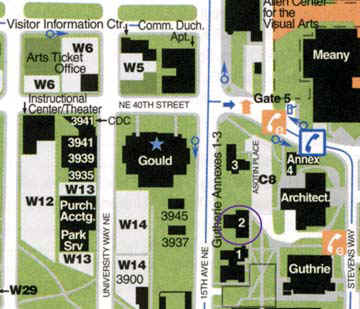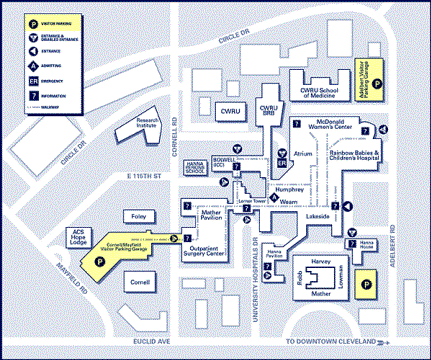
“People
can’t be trusted—the world isn’t safe.”
“I have no control. I am going crazy.”
“My
life will never be the same.”
“It
was my fault—I should have known what would happen.”
Sexual assault
Childhood sexual assault
Assault with a weapon
Combat
Armed robbery
Car accident
Recurrent thoughts of the trauma
Intense feelings of fear and anxiety
Nightmares
Sweating, racing heart, or hot or cold flashes when
reminded of the trauma
Avoiding situations, people, or thoughts associated with
the trauma
Feelings of detachment from others
Difficulty experiencing strong emotions (feeling numb)
Jumpiness or a tendency to be easily startled
A clinical trial is a research study to answer specific questions about new therapies or new ways of using established treatments. Clinical trials are used to determine whether new drugs or treatments are both safe and effective. Most current drug therapies were initially developed in past clinical trials. When being considered for a Clinical Trial, the research staff will provide you with an informed consent document that includes the following details: why the research is being done, what will be done during the trial, what risks and benefits can be expected, availability of alternative treatments, contact information, confidentiality, and any costs.
At
the UW Center for Anxiety and Traumatic
Stress
and at the Post
Traumatic Stress Disorder Research and Treatment Program, we study and treat the symptoms
of
PTSD. Because we receive funding for our research, we are able to offer
no-cost services to eligible individuals who are experiencing trauma-related
problems.
To find out if you are eligible for our
services, please call the program in your area. One of our staff will conduct a brief
interview by phone. If you are not eligible for any of our services, we will provide
free referrals to other sources.
Contact
Information and Directions for UW (Seattle, WA)
UWCATS)
University
of Washington Center for Anxiety & Traumatic Stress
The Center for Anxiety and Traumatic Stress at the University of Washington is affiliated with the Department of Psychology. The program’s mission is to provide treatment services (medication or psychotherapy) to trauma survivors. As a research program for post-traumatic stress disorder (PTSD), we seek to offer the most innovative, empirically supported, and effective treatments for the disorder.
Guthrie
Annex II, 2nd Floor | Box 351525
University
of Washington | Seattle, WA 98195
|
Lori A. Zoellner, Ph.D. |
|
|
Peter Roy-Byrne, M.D. |
Joyce
Bittinger, M.S. |
|
Joshua McDavid, M.D. |
Michele
Bedard, M.S. |
|
Jessica Chen, B.A. |
Stephanie Pierce, B.A. |
|
Jeff Jaeger, M.S. |
Aileen Echiverri, B.S. |
From
I-5:
Take the 45th street
exit (UW)
Go east on 45th
street to 15th avenue and turn right on 15th
At 40th street, turn
left onto campus (Gate 5)
At the gatehouse, tell the attendant that you have an appointment in Guthrie Annex II
By
Bus:
From routes 43, 44,
45, 46, 48, 75, 167, 271, 272, 277, and 373, exit the bus at 15th avenue and
40th street (Gate 5)
Take the pathway
from the SE corner of the intersection to the C-8 parking lot and Guthrie Annex
II
Guthrie Annex II is
the two-story, grayish building at the south end of the C-8 parking lot

Contact
Information and Directions for Case Western Reserve (Cleveland, OH)
Post Traumatic Stress Disorder Treatment and Research Program
Case Western
Reserve University
The Post
Traumatic Stress Disorder Treatment and Research Program offers
free evaluations, cognitive-behavioral treatment and/or medication to eligible
men and women. This
program is offered at University Hospitals of Cleveland/Case School of Medicine.
The purpose of this program is to provide treatment to men and women suffering
with PTSD.
Tel: 216-983-0836
Case Western Reserve University
Department of Psychiatry / Hanna Pavilion
11100 Euclid Avenue / Cleveland, Ohio 44106
|
Norah C. Feeny, Ph.D. |
Sue Baab, R.N., M.S.N., C.S. |
|
Matig Mavissakalian, M.D. |
Edwin Shirley, Ph.D. |
Nora McNamara, M.D. |
Jeannie Duax |
|
Eric Youngstrom, Ph.D. |
Annamaria Aguirre |
|
Lisa Stines, Ph.D. |
Jennifer Fabritius |
From the North:
Exit 1-90
at Martin Luther King Blvd. Proceed south to Euclid Avenue
Turn left
on Euclid, then right on Cornell Road
From the South:
Take 1-77
North or 1-71 North (both become 1-90 East) to the Chester Avenue exit
Proceed east on Chester to Euclid Avenue
Turn left on Euclid, then right on Cornell Road
From the East:
From the Ohio Turnpike the suggested route is 1-480 West to 1-271 North
Exit at Cedar Road. Proceed west to Murray Hill Road
Turn right on Murray Hill Road, then left on Cornell Road
From the West:
Follow 1-480 to 1-71 North, or take 1-90 East
Shortly past the merge of 1-71 North - I-90 East, exit on Chester Avenue
Proceed east on Chester to Euclid Avenue
Turn left on Euclid, then right on Cornell Road
****The
suggested parking area is the Cornell Parking garage
